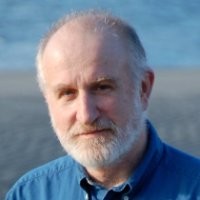The spec sheet for the new Harvey Energy platform supply vessel on Harvey Gulf International’s website identifies the boat as a “310' Duel Fuel Class DPS-2 PSV DWT 5,135.”
Did you notice the typo? The description should read: “Dual Fuel.” Duel is a noun that means fight. Dual is an adjective that means two of something. For the Harvey Energy, dual fuel means the engines can operate on both LNG and diesel fuel.
But, in a way, “duel fuel” represents the option to choose between competing fuels, diesel or LNG.
It’s not really much of a competition right now, considering that the Harvey Energy will be the first commercial vessel in North America to utilize natural gas fuel, but it’s clearly the beginning of a trend. Harvey Gulf has five more dual-fuel PSVs in the works and is also building its own LNG fueling facility in Port Fourchon, La. Crowley Maritime and TOTE are both building LNG-powered, Jones Act cargo vessels. In Canada, ferry operators are having new LNG-powered boats built both in Canada and Europe. Norway now has the world’s first LNG-powered tug as well as numerous ferries powered by LNG.
Because LNG is both environmentally cleaner than diesel fuel and about half the price, it’s certainly an attractive alternative for almost any commercial operation that is under pressure to clean up its emissions, like cargo vessels operating the Emissions Control Areas along our coastlines. Ferries are also excellent candidates for LNG as their consistent point-to-point operations allows easier development of LNG fueling infrastructure and the lower fuel costs are very attractive.
Dual-fuel engines, by the way, can operate on either diesel or a combination of diesel and LNG. Because LNG isn’t ignited by pressure, like diesel, it needs either a spark or some diesel ignition to release its energy. For spark-ignited LNG engines, there is no duel or duality, it’s just gas.



